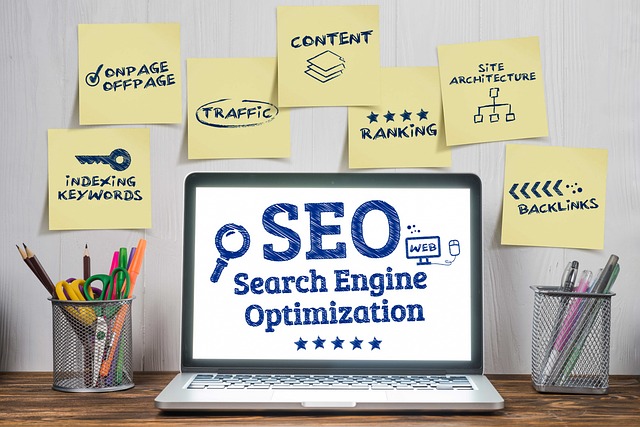You’ve decided to take your business online or maybe build a better website from scratch. It’s an exciting step towards reaching new customers and expanding your brand’s reach. Before you dive headfirst into stunning visuals and captivating content, there’s a crucial element to consider: Search Engine Optimization (SEO).
We have a lot of people who come to us with poorly built websites and we also come across a lot of dysfunctionally made websites as well.
Here’s the truth: SEO isn’t an afterthought; it’s the foundation upon which a successful website is built. Integrating SEO principles into your website development process from the very beginning saves time, resources, and ultimately, frustration down the line.
Let’s explore why SEO is so critical for your website and why neglecting it during development can lead to costly rework.
Why SEO Matters
Sure, your website might be beautiful, but if no one knows it exists, it won’t attract many visitors. Lots of people don’t know what tags (H1, H2, etc.) are and using tagging just for design. But if you not gonna put what you do in the title (H1) then it may be hard (or impossible) for Google to even know what your website is all about. Imagine home page with big letters “Best in the town”. While it may be great to showcase, this doesn’t even neraly can explain to Google (or users) what this website is all about. This is the reality of a website lacking proper SEO.
Search engines like Google are the primary gateways for users to discover online information and resources. SEO helps your website rank higher in search engine results pages (SERPs) for relevant keywords that potential customers are actively searching for. This organic visibility is a game-changer.
Here are some key benefits of effective SEO:
- Increased Website Traffic: Higher rankings in SERPs mean more potential customers will see your website,leading to a significant boost in traffic. Just check the statistics for clicks distribution.
- Targeted Audience: By focusing on relevant keywords, you attract visitors genuinely interested in your products or services, translating to higher conversion rates. It’s like you know this being search for and you’re just going for it. Basically, trying to supply demand, instead for trying to create it or find it.
- Enhanced Brand Awareness: Strong SEO improves your website’s visibility and builds brand recognition within your target market. Even if your website will show up below the first results, even seeing the name and logo will already help your brand.
- Cost-Effective Marketing: SEO is an organic strategy, unlike paid advertising, offering a long-term return on investment.
- Credibility and Trust: Ranking well in SERPs indicates search engines find your website valuable, which builds trust and credibility with potential customers. At some point, it becomes likes a snowball – accumulating reposts and backlinks itself.
The Pitfalls of Neglecting SEO During Web Development
What happens when SEO is left as an afterthought during website development? We will not name them or give our details, but the outline and idea are here. Here are some real-world scenarios we’ve encountered:
- Example 1: single page shop
We came across this website and it was pretty weird to imagine someone actually even took their website serious. But it was listed on Google business profile and receiving clicks. This website was just single page with non existing clickable links. And on top of that it was sort of “e-commerce”.
- Example 2: poor quality, murky photos with a few pages
Another example involved a well-established shop, where people really come and buy. It was a specialty shop with nothing like that within 70 miles, so the business wasn’t struggling much, but since it was a specialty, some would prefer to drive for a better proposition. It was still worth to upgrade the website, to look professional, improve the image of a brand and keep people on a page instead of leaving and looking for something else.
Very often we also come across website with no tags, with not enough content, with nothing ranking at all with unsubmitted pages. We see local businesses without Google Business profile and website without any contact information.
Retrofitting vs. Building Right: Why Integration is Easier
In both these instances, fixing the SEO issues often required a significant website overhaul. This meant revising content, restructuring navigation, and implementing technical SEO best practices – a time-consuming and expensive process.
Here’s why integrating SEO from the beginning is far more efficient:
- Solid Foundation: Web developers working alongside SEO specialists can build a website with a strong SEO foundation, making it easier to rank for relevant keywords. This includes optimizing website structure, code, and content for search engines from the get-go. Keyword research should be done in the beginning so you can start creating your content with focus.
- Content with Purpose: SEO-informed content creation allows you to target specific keywords and user intent. This ensures your website answers the questions your ideal customers are searching for, naturally improving search rankings and user engagement.
- Long-Term Growth: Websites built with SEO in mind are designed to grow organically. Integrating SEO best practices from the outset allows for easier scaling and future optimization as your target audience and brand evolve.
Building a Website for Success: The SEO Checklist
So, how do you ensure your website development comes with SEO in mind? Here’s a starting point:
- Keyword Research: Identify relevant keywords that your target audience is actively searching for.
- On-Page Optimization: Optimize website content, page titles, meta descriptions, and image alt tags with targeted keywords.
- Content Strategy: Create informative and engaging content that provides value to your audience and aligns with your chosen keywords.
- Website Structure and Navigation: Ensure a clear and logical website structure with proper internal linking,making it easy for both users and search engines to navigate through your website.
- Mobile-Friendliness: In today’s mobile-first world, a website that adapts seamlessly to different devices is crucial for user experience and SEO ranking.
- Technical SEO: Implement technical SEO best practices to ensure your website is easily crawlable and indexed by search engines. This includes optimizing website speed, mobile responsiveness, and ensuring there are no broken links.
- Analytics and Tracking: Integrate website analytics tools to track website traffic, user behavior, and keyword performance. This data helps you refine your SEO strategy and measure its effectiveness.
SEO and Web Development – A Powerful Partnership
By integrating SEO into your web development process from the beginning, you create a website that’s not just aesthetically pleasing, but also strategically positioned to succeed in the digital landscape. This collaborative approach saves time and resources in the long run, allowing you to focus on what matters most – growing your business and attracting your ideal customers.
Remember, SEO is an ongoing process. However, a website built with a strong SEO foundation is easier to maintain and optimize as your business evolves. So, the next time you embark on a website development project, consider SEO as an essential ingredient, not an afterthought.
And if you need help with getting your spot under the sun, we can put our expertise to work and help you to create beautiful website with SEO and mind and further assist you with your marketing needs. Contact us for more information or just browse on our website to see what we have to offer.







